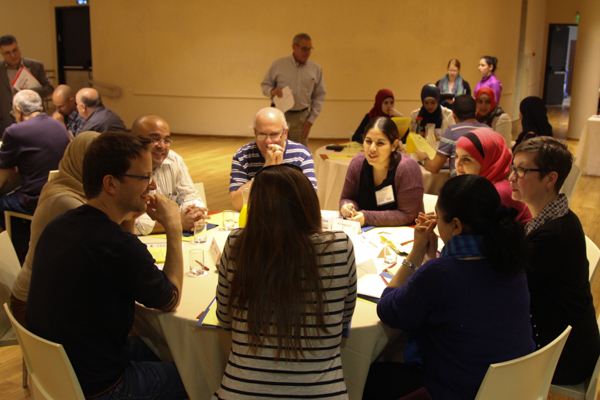

A few weeks ago, a team of trauma experts including alumni and mental health couseling graduate student Rebecca Rodriguez traveled to Israel as part of the Institute for Disaster Mental Health at SUNY New Paltz.
Rodriguez began her time at New Paltz as a psychology major and a disaster studies minor. As a graduate student she works as part of the mental health counseling program.
“It sounds cliché but when do people need help the most?” Rodriguez said. “It’s something about disasters that make you want to help.”
The purpose of the trip was to train the 30 Israeli and Palestinian mental health professionals who attended the session on how to deal with the psychological aspects that come with trauma so they could then pass it on and train members of their own communities.
Rodriguez described the training session as a sort of psychological first aid.
“I feel like it’s being human. You try to get people to develop their natural coping mechanisms whether that means social or practical support,” Rodriguez said. “If you are trained, it means you know how to get someone in a stable place. You are really promoting being calm and empathetic with them.”
All of the attendees of the training session were in the mental health field in one way or another.
Rodriguez felt initially the Israelis and Palestinians were a bit closed off to each other but had some basic level of comfort already in place. The groups were split up and then put back together.
While everyone had come together to learn how to deal with crisis and disaster mental health, the two sides still had their reservations, Rodriguez said.
“I noticed that the Palestinians and Israelis had a willingness to discuss, but they also held back,” Rodriguez said. “There were certain things they didn’t want to get into. With politics there was a sort of self-regulation.”
Rodriguez said that topics would come up and someone would say they “didn’t want to get into it,” in order to avoid potential arguments.
The two sides began a discussion about the challenges they face, which proved to show that many of their problems were very similar.
A survey at the end of the session showed that attitudes toward one another’s national origins had changed, and that they felt they now had a better understanding of each other.
The experience of turning a population of people into individual stories was something Rodriguez also felt.
“Organizationally, we conceptionalized the two groups as Israelis and Palestinians,” Rodriguez said. “But by the end of the trip they all had a face and all had story.”
